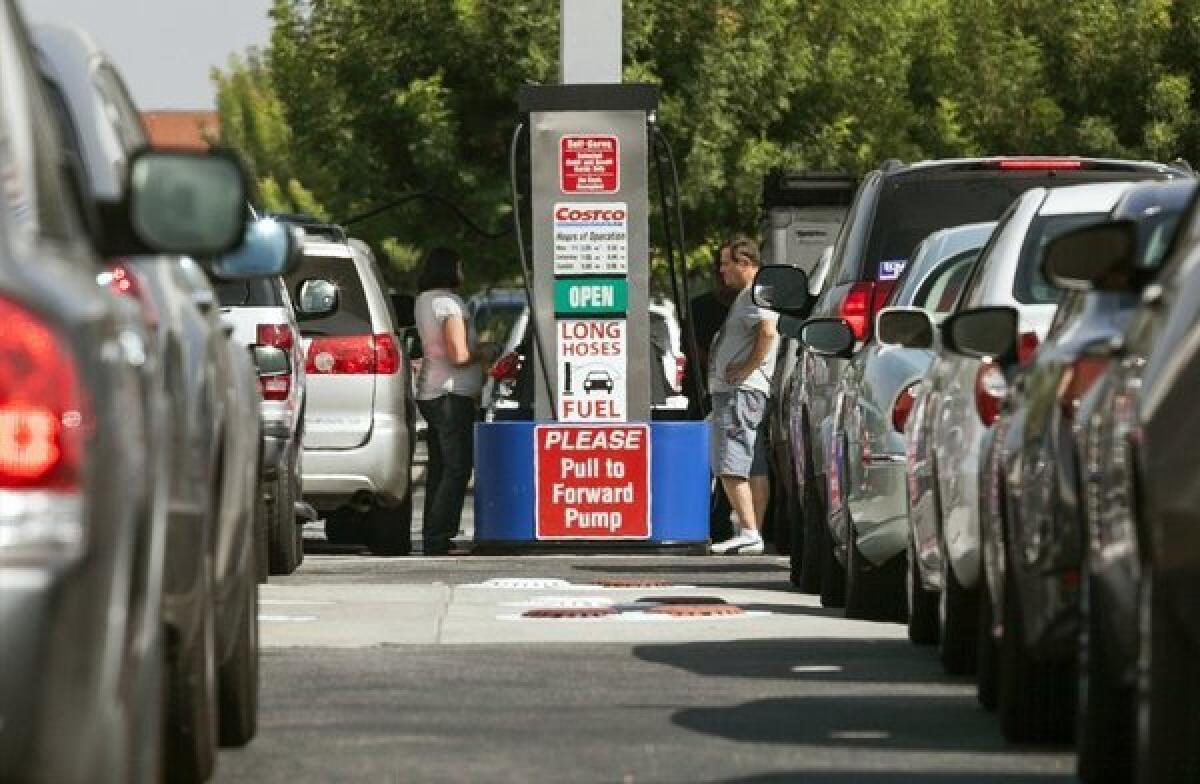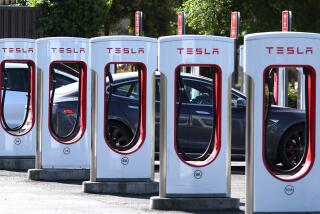Ford hoping to tap thirst for fuel efficiency with phone app contest

- Share via
Ford Motor Co. will offer a $25,000 first prize for whoever makes the best phone app for fuel efficiency.
The Ford Personalized Efficiency Challenge runs through July 24. Anyone entering has to work through the automaker’s OpenXC research platform.
Ford describes OpenXC as “an open-source hardware and software platform developed by Ford Research and Innovation to unleash the power of the open-source hacker community.”
PHOTOS: Top 10 cars with lowest sticker price per mpg
Ford isn’t the first automaker to try to tap into the drive to improve mileage or go green.
Buick already has its own app, called Buick Fuel Efficiency Games, which is available for Apple or Android phones.
Buick’s app, the automaker says, is “intended to educate and inform users about the fuel-saving benefits of Buick’s eAssist Technology through three interactive game experiences.”
Earlier this year, Honda unveiled a program through which buyers of its Honda Fit EV or Accord plug-in hybrid could get a discount on a home solar power system.
Ford spokeswoman Debra Hotaling said, “We are all looking to find ways to be wise with our resources. We’re excited to see what this challenge is going to bring.”
But there are already a huge number of phone apps out there (we stopped counting at 100 on a search for “fuel efficiency”) that are designed to help drivers improve their habits and mpg.
The more sophisticated apps out there, including Efficiency (free, Android) and Efficiency Pro ($3.99), will tap into your car’s OBD-II or On-board Diagnostic System, if your car has one.
Most of the others require a lot of personal input, such as dutifully logging how much gasoline you buy and how many miles you are driving, and sometimes much more.
Gas Tracker + (free, for Apple and Android) works with information from Fuelly.com and claims to be able to show users “how your driving pattern affects your overall mpg.”
The myFuelScore app (free, Apple) assigns the user a fuel efficiency score after you drive a particular route to work. Then it instructs you to change something, like the route or how strongly you accelerate, to see if you get a higher or lower score.
Experts who have studied consumer behavior during gasoline price spikes say these kinds of promotional campaigns and apps will most likely resonate only at certain times.
The bottom line: If gasoline prices are rising fast, consumers will pay a lot of attention. If prices are falling, they are less likely to care.
“People don’t always want to drive carefully and sacrifice speed on the highway, unless they happen to be really motivated to save money or fuel that day,” Ohio State University professor and economist Matt Lewis said in an interview.
“My suspicion is that they will be less likely to care when prices are going down,” Lewis said.
ALSO:
Motorcycle deaths spiked in 2012
New Chevy Spark claims EV efficiency crown
North America powers big profits for Ford Motor Co.






